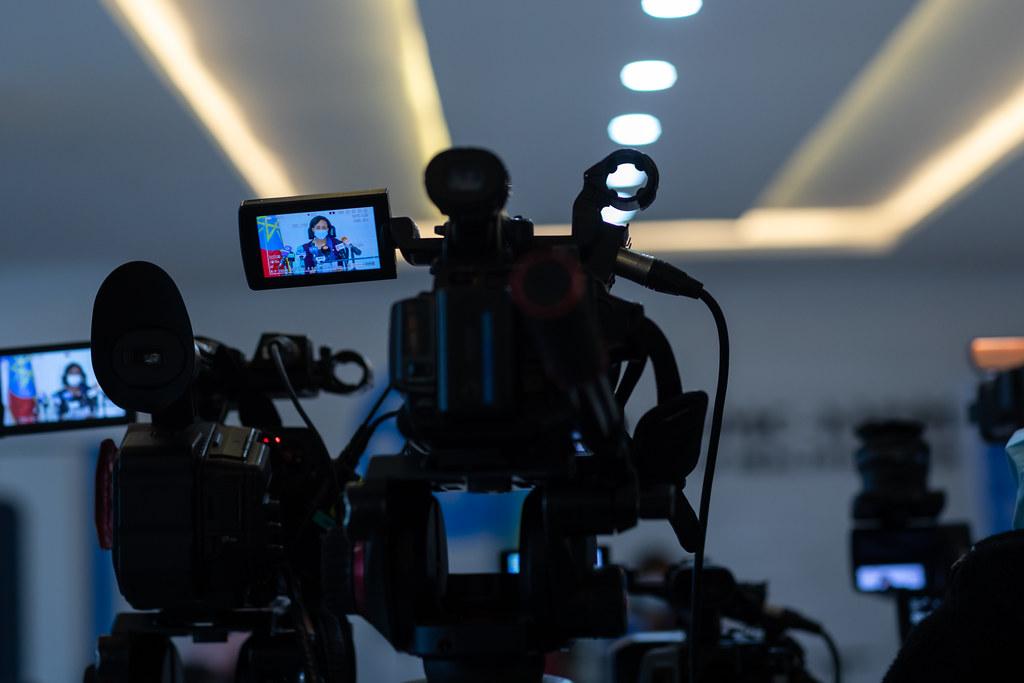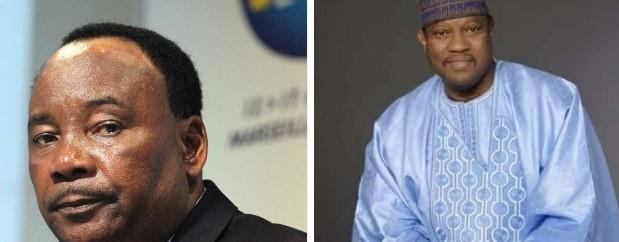Ethiopian journalists are taking a stand for press freedom in 2022

Over forty of our colleagues were arrested in 2021. In this open letter, we call on the government to respect media rights.

Dr Lia Tadesse, Minister of Health in Ethiopia, addressing journalists in August 2021. Credit: UNICEF Ethiopia/2021/Mulugeta Ayene.
We the undersigned Ethiopian journalists and media professionals are of an uncompromising stance when it comes to press freedoms and, as such, wholeheartedly condemn all persecution of fellow journalists and media personnel in Ethiopia, targeted simply for doing their jobs.
We stand today in solidarity with our colleagues across the country.
For decades, Ethiopia had carved a reputation for itself as one of the world’s top jailors of journalists due to institutional and systemic crackdowns on critical voices and a thin tolerance for any forms of dissent. Ethiopia’s infamous anti-terror proclamation, passed into law in 2009, paved the way for journalists to be charged with treason, terrorism, and be sentenced to life in prison. This led to scores of Ethiopian journalists being arrested or forced into exile and served as a pretext to shut down broadcast and print outlets which didn’t cater to pro-government narratives. At no time in its modern history had an Ethiopian independent press been allowed to thrive.
The political facelift which Ethiopia underwent in 2018 instilled much collective optimism. Journalists were released from prison; those in exile were invited back home with the promise of being permitted to work unperturbed. News outlets based abroad set up shop in Ethiopia for the first time. By late-2018, Ethiopia had no remaining media staffers in its prisons for the first time in over a decade, a promising step forward.
However, the country has since backpedalled considerably on its pledges to honour press freedoms. Detentions of journalists have once again become the norm. News outlets have been forced to shut down and the local independent press has been all but scuppered. Over the course of 2021, two journalists, Dawit Kebede and Sisay Fida, were killed and over forty journalists and media staffers were detained, resulting in Ethiopia rejoining the ranks of Africa’s top jailors of journalists.
We are disappointed and saddened by the setbacks and the reversals of advances made just a few years ago, which had uplifted Ethiopian media professionals and had many of them aspiring to contribute in their own capacity to the widening of our country’s independent press sphere. Those sentiments have long been replaced by disillusionment.
Media freedoms are a core essential of thriving communities and cannot be compromised on. Journalists enhance the societies they live in by pushing for social advances and accountability. However, the hostile environment so many of our colleagues in Ethiopia currently find themselves in has them intimidated, languishing behind bars, living in fear of the very real risk of arrest, and contemplating either quitting their jobs or fleeing the country.
With the distressing news that three media workers – Amir Aman Kiyaro, Tamerat Negera, and Thomas Engida – are set to be put on trial emerging, and with the dearth of voices in Ethiopian society speaking in defence of the country’s journalists, we the undersigned Ethiopian journalists have come together to in unison and declare that:
- We recognise the suffering and uncertainty endured by fellow journalists, media staffers, and their families in Ethiopia during this critical time. We also honour their strength and resilience unreservedly.
- While welcoming the releases of a number of journalists from custody in recent weeks, we reiterate our call for the immediate releases of all remaining imprisoned journalists and media staffers detained across Ethiopia.
- We echo the message of press freedom advocates both in Ethiopia and around the world by calling for the upholding of laws securing for Ethiopians, their hard-fought press freedom rights.
- We’d like to express our gratitude towards the organisations who have remained unwavering in their commitment to imprisoned and persecuted Ethiopian journalists, including the likes of Committee to Protect Journalists (CPJ) and Reporters Sans Frontières (RSF).
Sincerely, the following media staffers* (listed in alphabetical order):
- Abdulrazaq Sheikh Hasan
- Akemel Negash
- Argaw Ashine
- Dawit Endeshaw
- Dejene Gutema
- Eshete Bekele
- Eyasped Tesfaye
- Getachew Assefa (Phd)
- Kalkidan Ejigu
- Maya Misikir
- Moonira Abdulmenan
- Reeyot Alemu
- Sadik Kedir
- Shimelis Meressa
- Tsedale Lemma
- Zecharias Zelalem.
*Around a dozen more journalists wished to sign the letter but were not given permission by their employers.






